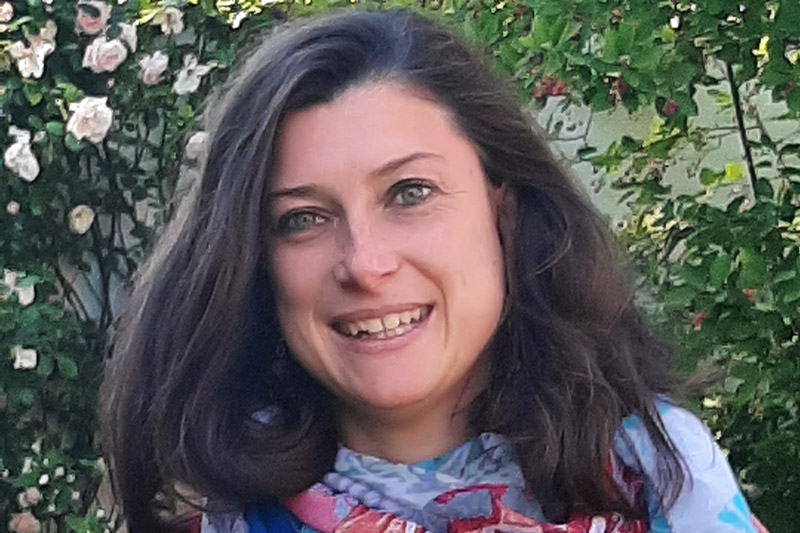»Children learning English through play in kindergarten«
I have been working in the kindergarten “Die kunterbunte Kinderkiste” in Lübeck since October 2021 and am responsible for bilingual education in English there. I was born in Lübeck, am 32 years old and hold a master’s degree as interpreter and translator. I am self-employed working in Lübeck and Schleswig-Holstein. I very much enjoy working in bilingual education, as well, because I love to combine my English and interpreting skills with working with children. I work in the kindergarten 8hrs/week, on two days. In total, there are four groups in the Kinderkiste, I work two days with one group before I join another group in the following week.
For me it is fascinating to experience how easy and playfully children dive into a language they do not know, yet, when the get the opportunity to learn this language in a natural way, “on the go”, so to speak. This is what bilingual education is about: When entering the kindergarten, I switch to speaking English and only speak English with the children, like a native speaker would. I join them in their day-to-day routine in the kindergarten: We have breakfast together, when the children play or do handicraft I am at their side, I join the morning circle time and am with them when they play in the garden. Those different day-to-day situations offer great opportunities to start conversations with the children and convey English vocabulary, without making them feel like being in an English class. Topics are the days of the week, food, clothing, toys and other subjects which we talk about in the morning circle time. Here themes like the forest and its animals, dinosaurs or the planets can be mentioned.
In accordance with those themes, which are presented by the kindergarten’s other staff, I introduce English elements: Sometimes I read a story, sometimes I sing a song and invite the children to join in. Furthermore, I sometimes introduce something which is typical for the respective season: For example, we talked about flowers and gardening in spring, about carnival time or other special occasions like Easter or Christmas.
What often surprises me and makes me happy, is to experience, how the children often understand what I would like to tell them in English and are able to answer to questions. They do so, even though most of them haven’t been in touch with the English language before. I ask questions or explain something in English and they answer appropriately in German. Sometimes I also try to convey English vocabulary by combing words and gestures or words and pictures. So far, I have experienced very different reactions in the children: Some are rather shy in the beginning, sometimes some children are a bit frustrated when they do not understand me right away. I also experience that some children obviously enjoy English and have fun learning it. They start to repeat vocabulary relatively quickly. Some children try to communicate with gestures or approach the educators or other children in order to be able to communicate. It is always I very nice experience, when a child greets me in English, is proud to tell me which English word he or she has learned already or for example directly asks what the word “Auto” means in English.
In my opinion, the concept of bilingual education is very good, and I consider it to be effective, too. Children learn at an early age that different languages exist, that it is possible to learn foreign languages and – most importantly – that this is fun and can be easy. I am very happy to be able to contribute to the children’s English skills in the kindergarten “Die Kunterbunte Kinderkiste e.V.” as “the English person”, as one of the children once called me.
